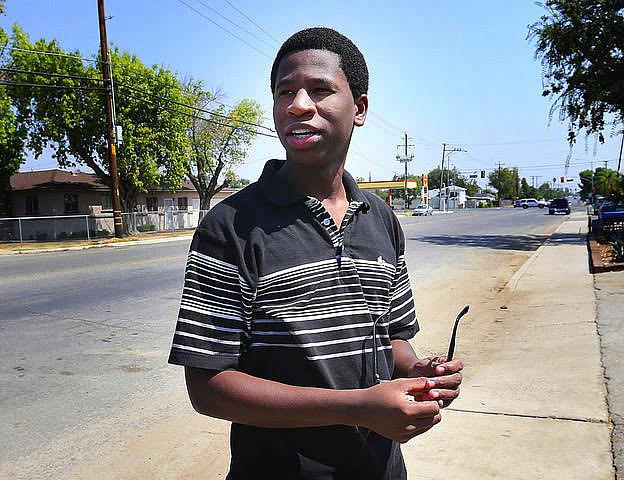In California’s Kern River Valley, a reporter finds lives upended by generations of trauma

Isaiah Mosley grew up in the foster system. He's a model of resilience and overcoming childhood adversity. (Photo: Henry A. Barrios)
Walk around the Kern River Valley, Oildale and parts of Bakersfield any day and you’ll see hopelessness. There’s the homeless wandering the streets, junkies searching for a fix and punishing poverty that lurks in almost every neighborhood.
For years, we’ve known there’s something cyclical about poverty, chronic drug abuse and intergenerational despair.
When I learned about a study performed by the California Department of Public Health that found Kern County mothers experienced more childhood trauma than mothers anywhere else statewide, it began to make sense.
Those women dealt with childhood adversity, including poverty, family hunger, and parents with drug or substance abuse issues, incarceration and legal troubles. They might have abused drugs themselves at some point, or attempted to commit suicide.
In a way, much of this despair couldn’t be helped.
That’s because once somebody endures that kind of sustained adversity, they’re far more likely to develop toxic stress. And once that kind of stress sets in, they’re 12 times more likely to die by suicide, 10 times more likely to use injection drugs and seven times more likely to abuse alcohol, according to a 2014 report published by the Center for Youth Wellness.
There are parts of Kern County where such outcomes are seemingly normal. Places such the Kern River Valley, a picturesque summer playground that’s home to Lake Isabella. The region — poor, white, rural and marked with economic uncertainty — is typical of those areas generally afflicted with high levels of toxic stress, researchers said.
One of the most challenging aspects of toxic stress — that those who endure it as kids can have their epigenetic markers altered and pass down that life of despair to their own kids — is also one of the most hopeful.
It provides some sort of reason why their lives had turned out the way they had. Such was the case for one woman whose life was wracked with adversity. She spoke to me on the condition of anonymity
She was going through divorce. Her husband was attempting to take her kids out of the area. Her son endured so much trauma that by the time he entered high school, he had already scored a nine out of 10 on the ACEs questionnaire, meaning he had tried injection drugs, felt unloved and was emotionally or physically abused, along with a litany of other difficult experiences.
She attended a parenting class and learned about toxic stress there, and that it could be passed down generationally.
“It bothered me, because I thought — I wondered how much it affected my children,” she said. “I don’t want it to continue onto them or their children either.”
In a nutshell, that’s why it was so important for me to undertake this kind of project. It would have been easier, and probably better-received, had I chosen to write about COPD or any other respiratory ailment that is so typical of the San Joaquin Valley, but if we’re looking for a health issue that determines quality of life more than any other around here, it’s toxic stress.
When you start writing about particular neighborhoods and areas so small that they can’t be counted by census, people get ticked. It’s a normal reaction for those who love their hometowns — but that’s not a reason to back down from reporting.
I saw plenty of Facebook comments from people in the Kern River Valley who were offended by the way we painted their community. Unfortunately, there wasn’t a single person I spoke to in that area who disputed that there’s a degree of hopelessness there. And every one of them confirmed the data showing the number of alcohol- and drug-related deaths, often backing them up with stories of people they knew who were facing issues related to early childhood trauma.
Christy Luton, a victim’s advocate in that are, stated it succinctly: “I could see our whole valley in it.”
This health issue, albeit daunting, is one that can be addressed. And steps are already being taken to fix major problems. Since the launch of our series, there have been multiple conferences scheduled locally to teach health providers about trauma-informed care, and it seems as though the community is stepping up to create better health outcomes for those who have endured substantial childhood trauma.

